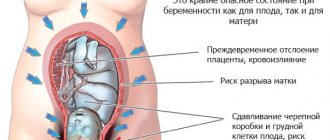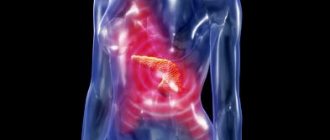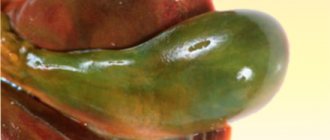- Advantages
- Doctors
- Contacts
- Licenses
Advantages
- The latest, constantly updated equipment
- Interest-free installments for all services
- Online consultations with an ENT doctor
- Visit of an ENT doctor to your home
- Friendly and qualified staff
- 24/7 ENT assistance
Hyperosmia is increased sensitivity to odors. This condition can lead to discomfort and cause disruption to the usual rhythm of life. First of all, sensitivity to perfumes, household chemicals, and scented candles increases.
The causes and accompanying symptoms of hyperosmia can be varied. An otolaryngologist will help you understand the situation and suggest the most rational options for coping with the existing problem. The main thing is to see a doctor in time.
Causes of hyperosmia
There are several factors that determine increased sensitivity to odors. It can be:
- Genetic predisposition - some people do have a stronger sense of smell than others. This pattern is often observed among perfumers.
- Pregnancy. Hormonal changes that occur during gestation, especially in the first trimester, can lead to a woman’s sense of smell becoming more acute. Pronounced aromas can even cause nausea and vomiting due to overexcitation of the corresponding centers of the medulla oblongata.
- Autoimmune pathologies. Quite often, adrenal insufficiency and systemic lupus erythematosus lead to an exacerbation of the sense of smell.
- Borreliosis. About every second person who is bitten by a Borrelia-infected tick has increased sensitivity to odors.
- Diabetes mellitus type 1. In the absence of adequate compensation for carbohydrate disorders, the activity of nerve receptors changes.
- Brain lesions. A similar situation can be observed in Alzheimer's disease, Parkinson's pathology, epilepsy, and multiple sclerosis.
- Pathological processes in the nasal mucosa and paranasal sinuses. This is hyperosmia in the focus of inflammation, in the area of polypoid growths, etc.
- Long-term use of vasoconstrictor drugs. These drugs can have a stimulating or depressant effect on the olfactory receptors.
- Hypovitaminosis. Hyperosmia especially often develops against the background of cyanocobalamin deficiency.
- Migraine. This disease is accompanied by headache, which is often combined with nausea and vomiting.
Recently, doctors have had to deal with hyperosmia due to coronavirus. Of course, this infection is more characterized by a decreased sense of smell, but some patients also experience increased sensitivity to odors.
Symptomatic therapy
The heightened sense of smell that occurs in pregnant women and women before menstruation does not require drug treatment. For severe disorders in such cases, psychotherapy methods and relaxation exercises can be effective. If hyperosmia disrupts the quality of life of patients, interferes with daily activities, causes aversion to food, mild sedative herbal medicines are used. When an exacerbation of olfactory sensitivity is associated with organic pathology, treatment is prescribed only by a specialist after carrying out diagnostic measures and making an accurate diagnosis.
Treatment of hyperosmia
Hyperosmia in men and women is treated taking into account the main etiological factor. Thus, for inflammatory lesions of the nasal mucosa and paranasal sinuses, corticosteroids, immunomodulators and antibiotics are prescribed when opportunistic flora is activated. The predominant route of administration is local (in the form of sprays, drops).
If nasal polyps are detected, they must be removed. The operation is performed using a minimally invasive endoscopic method, which is characterized by low trauma and a short rehabilitation period.
During the recovery phase, if hyperosmia persists and it is impossible to avoid the appearance of odors, distraction therapy is recommended. This could be chewing gum or candy with a strong peppermint flavor.
If you are faced with the problem of hyperosmia, then do not tolerate this unpleasant condition. Make an appointment with qualified otolaryngologists at the Ear, Nose and Throat Clinic. Our specialists will help you understand the reasons that led to impaired sense of smell and create a personalized treatment program. Otolaryngologists at the Ear, Nose and Throat Clinic provide treatment in accordance with international protocols for providing medical care for hyperosmia.
Seeing a doctor in a timely manner will help maintain your health.
Don't delay treatment, call right now. We work around the clock. tel. (24 hours a day)
“Even people smell bad.” How to live with parosmia after Covid
Tatyana lives in the Moscow region. When she was expecting her third child, five months pregnant, she fell ill with coronavirus. She lost her sense of smell. “At first this made me happy, because I was too sensitive to smells, for example, I couldn’t travel on public transport,” recalls Tatyana. “But, of course, it was hard in everyday life: I almost fed the children rotten soup.” A month after giving birth, the situation changed, the smells began to return to me. But they were not the same as before: everything smelled of something chemical, rotten meat and some odors that did not even exist in nature. I remember the moment where it all started. At night I smelled a strong smell of rubber. At first I thought that he appeared because of a children's cheesecake, which they use to ride down the slide; it was standing in our hallway. We took the cheesecake out onto the balcony, but the smell did not disappear. And no one felt it except me. Then an unpleasant, sickly-sweet smell began to emanate from my hair. I put them in a bun, but it didn't help. Then I began to smell the same smell from the products. As a result, I stopped cooking and eating normally for a while. She saved herself by delivering ready-made food for her family, and for a month and a half she ate oatmeal and honey cake, took vitamins to smooth out the imbalance of nutrients, but her skin still broke out in acne. In the end, I began to smell an unpleasant odor even from people, and tried not to let anyone into my room. When I got hysterical because of this, I started googling what it even was. My husband believed that parosmia exists only when I sent him an article about it.”
Tatyana went to the doctor, but he did not solve the problem. However, she is now making progress for the better. “The doctors didn’t really help me: someone didn’t understand my problem, one doctor recommended a drug to improve cerebral circulation, but it didn’t help me. Now I’m seeing slight progress for the better - I’ve started eating potatoes,” shares Tatyana.
Collage: Anna Sbitneva
“Among the smell disorders with Covid-19 in clinical practice, we most often encounter anosmia (complete absence of smell) and hyposmia (its significant decrease), explains Alexey Yakovlev, Candidate of Medical Sciences, Director of the Association for the Development of Rehabilitation, Physiotherapy and Habilitation. — Parosmia — distortion of odors — is somewhat less common with Covid-19. Like other smell disorders, parosmia develops due to the ability of a virus to penetrate nerve cells and cause so-called “neuroinflammation” - this is called neurotropism of the virus. As a rule, smell disturbances with Covid-19 are short-lived and do not require the use of any specific additional therapy. On average, smell disturbances develop on days 3–5 of the disease and persist during the first 8–14 days of the disease. Most patients note complete restoration of olfactory function by the time the virus is eliminated from the body. However, if olfactory dysfunction persists after the patient receives the first negative PCR smears, this is always a reason to contact specialists - a neurologist and an otorhinolaryngologist.” Yakovlev says that disturbances in the sense of smell are not always related to how seriously ill a person was. However, “it is known that vaccinated patients, in case of illness, suffer from Covid-19 in a milder form, i.e., any manifestations of the disease are less pronounced, the same applies to dysfunction of the olfactory analyzer.”
Alexey Yakovlev. Collage: Anna Sbitneva
“The duration of the violation depends on the severity of the damage. Within 6 months, 95% of patients regain their sense of smell. The taste usually returns to normal much sooner. Doctors have encountered post-viral anosmia before (with rhinovirus, adenovirus infections, parainfluenza), but much less frequently, says otolaryngologist, Ph.D. Anastasia Varvyanskaya. - There is no method that would instantly cure. You should consult a doctor if your sense of smell persists for a month or if you are bothered by a runny nose, nasal congestion, or pain. The doctor conducts an endoscopic examination of the nasal cavity, assesses olfactory and gustatory function. Depending on the situation, he may prescribe additional examination and treatment.”
Anastasia Varvyanskaya. Collage: Anna Sbitneva
“To date, there are no approved treatment regimens for persistent impairment of smell in patients who are convalescents of the new coronavirus infection Covid-19; treatment is always symptomatic and strictly personalized. But smell disorders can be a consequence of other diseases and pathologies, some of which are very serious. Among the neurological diseases in which a violation of the sense of smell may be one of the first symptoms, Parkinson's disease, Alzheimer's disease, dementia with Lewy bodies, and brain tumors should be highlighted. All these pathologies require quite serious professional diagnostics,” Yakovlev points out.
“I got sick in July - I was very weak, I couldn’t get up, I was practically crawling around the apartment, and I had a severe headache,” says Anna, another person who recovered from coronavirus. — When everything passed, there were signs of disturbances in the sense of smell and taste when I ate eggs, but then the smell was even more or less normal. And just three weeks ago, active manifestations began: the smells of meat, onions and eggs changed. From these products I smell a pungent smell of rotten meat, which is generally intolerable. While I have not tried treatment, I hope that it will somehow go away on its own. At first I endured it, ate these foods through force, I just couldn’t believe that I would never be able to feel their previous taste and that it would now be so unpleasant. Then I realized that this couldn’t continue like this and I just had to eliminate these foods from my diet. Although these foods are my favorites, I used to simply not do without them, I ate them every day. Now you have to change your menu. I haven’t felt any better yet, but that’s because the problem with me is recent. I wasn’t particularly afraid of the manifestations of parosmia - it’s unpleasant, of course, that there is such a side effect. I had already heard about this problem, but I didn’t think that I would have it. I tried to “mask” the smell with spices, but I can still smell it all. The smell of the oatmeal has also changed, but for the better - for some reason it has a sweet smell, like it smells like caramel. I used to not like the smell of oatmeal, but now I like it.”
Anna. Collage: Anna Sbitneva
“Food does not become harmful because the brain does not perceive the smell correctly. The main thing is that it is not rotten,” explains the gastroenterologist, Ph.D. Roman Karas. — There is also usually no gastroenterological reason for such symptoms. Because smells are the brain and the nose. But with prolonged parosmia, you limit yourself in the intake of important nutrients, which, of course, will affect your health. Try eating food that smells like rotten fish or feces. Will it work? No. All that remains is to choose products that smell tolerable and avoid parosmia provocateurs. Pleasant taste and smell improve mood, improve appetite and bring joy. With parosmia, the opposite is true: sadness, melancholy, sadness and even weight loss. If you perceive odors incorrectly, you can miss a fire, harmful fumes/gases, a spoiled product, and even lose your job if you are a cook, perfumer, or firefighter. Hygiene difficulties arise."
Roman Karas. Collage: Anna Sbitneva
“Self-medication, which is based on recommendations from the Internet, is a very risky way to restore the sense of smell,” Yakovlev points out. “There are opinions from practicing specialists that neuroprotective therapy and vitamin therapy can speed up the process of restoring the sense of smell, but treatment should always be individual and a treatment plan should be drawn up only with face-to-face interaction between the patient and the doctor.”
Success in treating parosmia also depends on the psychological state of the person. Anxiety, sleep disorders, depression and hypochondriacal disorders can aggravate the symptoms. “The work of the olfactory analyzer is closely related to the work of the centers of the autonomic nervous system, so any psycho-emotional dysfunction that the patient has can contribute to a more pronounced disruption of the olfactory tract, including as part of the development of a syndrome complex of post-Covid disorders (the so-called Long Covid),” says Yakovlev .
“An important role for patients with olfactory impairment is the understanding and support of loved ones, the opportunity to discuss their problem with someone who is in a similar situation, and access to competent sources of information on this problem,” says Varvyanskaya. She also points out that each case of parosmia is individual, and to make a diagnosis you need to consult a doctor: “You need to start with an ENT specialist. The sense of smell can be impaired for various reasons: nasal/sinus disease, acute respiratory viral infections, trauma, neurodegenerative disorders.”
Collage: Anna Sbitneva
Denis, who had coronavirus, had to fight parosmia for about seven months. He was ill in December, and the disturbance in his sense of smell appeared in March. “I noticed the problem by chance when I was eating meat,” says Denis. “I thought it was just spoiled.” But the completely different meat smelled exactly the same the next day. And I realized that there was some problem with me, and not with food. My first thought was that there was something wrong with my nerves or something wrong with my head. I started searching on the Internet to see what it could be, and came across a group on the social network VKontakte where they discussed that distortions in smells appear after the coronavirus. And so everything fell into place in my head, I realized that all this was because of “corona.” There was no misunderstanding on the part of loved ones. At first they looked at me as if I was a little crazy, but when I explained the situation, everyone took it as normal. No one ever said that I imagined or invented something for myself. The biggest problem for me was the unpredictability of grocery shopping: I didn't know what I could eat and what I couldn't. At first it seemed that everything was simple: I can’t eat dairy, meat, onions, so these foods need to be excluded, everything else should be eaten. But sometimes some foods began to smell unpleasant, from which I did not expect this at all, for example, some vegetable. And it turns out that you simply throw away half of the food at home because you can’t eat it. All purchases were a lottery.” Denis did not go to the clinic because he was not sure that his attending physician could help in this matter.
“This problem itself lasted about seven months, the worst were the first two, when everything really stinks, from milk to soy meat, everything that contains protein, lactose,” recalls Denis. “Then the range of products expanded. Somewhere in the middle of summer I started drinking milk, it no longer had a strong smell. And gradually, over two months, the [unpleasant] smell disappeared completely. It’s the same story with meat: at first I only ate fish and sausage, and then I started eating pork, although chicken and beef still smelled bad. I started eating chicken normally in September. The recovery was not abrupt - it took me about four months. If there was no information about parosmia (and when I started, there was little information), then it would be absolutely terrible to walk around and think that there is something wrong with your head. And just not knowing what to do, whether the distortion of smells will ever go away, it would be very psychologically difficult. And when I found information, read the stories of people who had experienced this, it was somehow easier to accept.”
Illustrations: Anna Sbitneva
Are you dizzy and have a headache? It's all about chemistry
In the past, perfumes were made from natural ingredients - botanicals and essential oils. But those times are gone. Back in the late nineteenth century, various synthetic components began to be added to perfume, and in the modern world this has long become the norm. By the way, it was synthetics that seriously reduced the cost of perfumes, increasing company profits. Nowadays, almost anyone can afford perfume, although one hundred and fifty years ago they were real luxury items.
It has been proven that in some cases, the negative consequences of constantly inhaling harmful aromas can appear gradually. You might get a migraine after a couple of months of smelling your co-worker's favorite perfume.
Modern perfumes can consist of both natural ingredients (plant and flower extracts, aromatic wood, spices, natural oils) and synthetics. In most cases, if the desired extract is extremely expensive or difficult to produce, the manufacturer prefers to enhance a small amount of it with synthetics or make a full artificial analogue.
Of course, perfumes with unnatural aromas consist almost entirely of this synthetics. This primarily applies to perfumes with odors of tar, leather or cigarette smoke.









